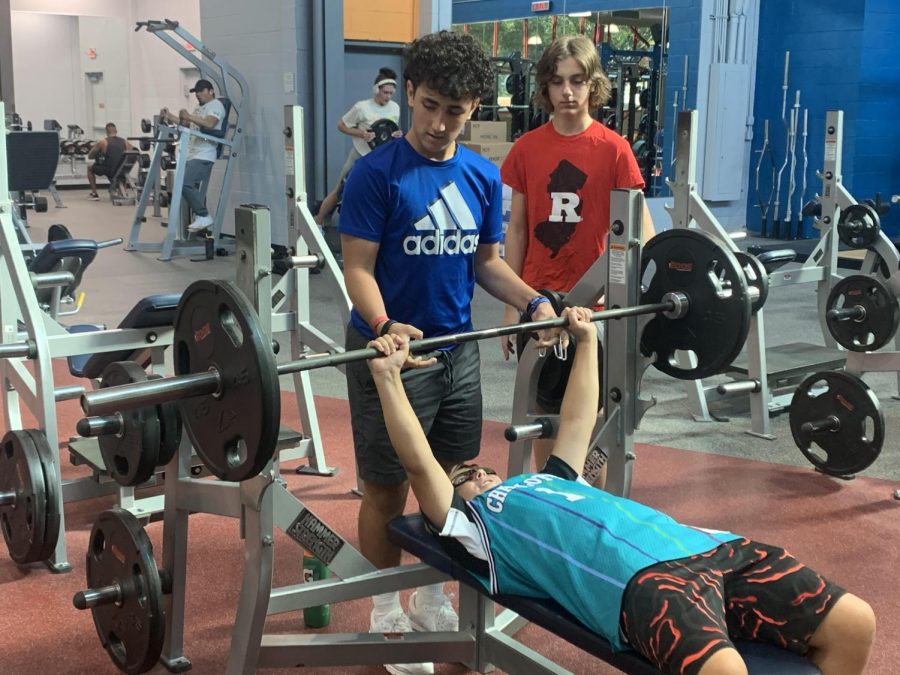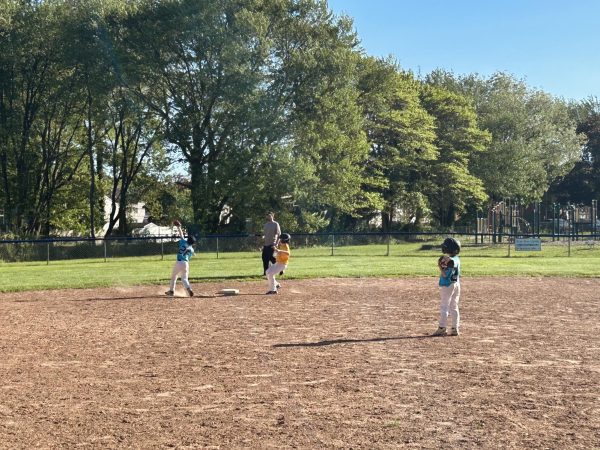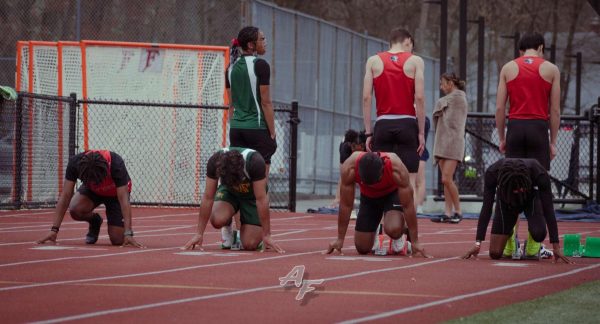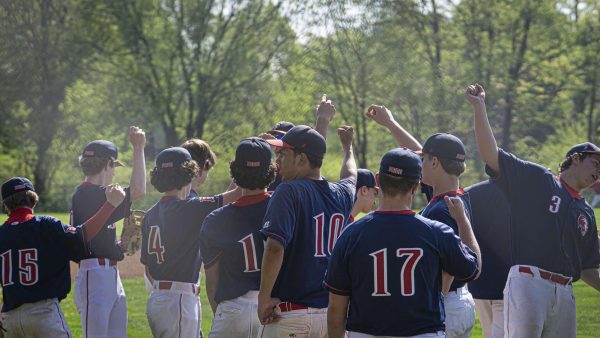Building Better Minds and Bodies
The Scientific Benefits of Hitting the Gym
Benching Better Bodies: Max Fallon-Silva benching at the gym as Braden Butler spots him.
Over the years the media, doctors, and schools express how exercise is good for the body.
There has been lots of research to support the benefits of exercising, especially for teenagers. These benefits include a healthier body, a healthier mindset and more.
When taking a deeper look into the benefits of working out as a teen, research shows it all begins with the brain. According to Kids Health, exercise has proven to improve memory and overall create better brain function. The body naturally releases endorphins that help the body feel good.
Not only is the brain improved from exercise, but strength is achieved and physical weight is kept under control, which then puts teens at a lower risk of developing diabetes, heart disease, and high blood pressure.
Sophomore Max Fallon-Silva states, “Going to the gym regularly has helped me improve my strength. In a short time I already feel stronger than I was when I first started going to the gym two months ago.”
Daily exercise helps strengthen the heart, muscles, and bones as well as helping teens become more flexible. This can help improve a teen’s performance in other sports such as dance, hockey, football, etc.
Sophomore Braden Butler explains, “Leg day at the gym is his most important workout. It helps me improve my performance in sports. Everyone wants chicken tender legs. Working the legs helps you become bigger, stronger and faster, so you can be the best you can be.”
Daily workout routines are always beneficial and recommended for teenagers, especially with their muscle growth. Teen exercise also helps the body become more flexible. Increased flexibility can help people perform better at other sports, such as soccer or lacrosse.
An article from Kids Health states, “Strong muscles are also a plus because they support your joints and help prevent injuries. Muscle-strengthening activities can also be bone-strengthening.”
Lifting weights is not the only thing that helps to make your muscles stronger. Pull ups and push ups work the arms. Running, biking, and skating helps strengthen the legs while abdominal and core strengthening come from workouts like yoga, planks, and crunches.
Heavy workouts demand sufficient nutrition. A healthy balanced diet includes foods high in protein, an increase in fruits and vegetables and portion control, all of which are essential to a teens successful workout.
Regular physical activity can help adolescents improve cardiorespiratory fitness, build strong bones and muscles, control weight, reduce symptoms of anxiety and depression, and reduce the risk of developing health conditions in the future.
Your donation will support the student journalists of Foran High School. Your contribution will allow us to purchase equipment and cover our annual website hosting costs.

Hello, My name is Gavin Fanelli and I'm a junior at Foran High School. This is my third year of being a staff writer of the Mane Street Mirror. I play...







